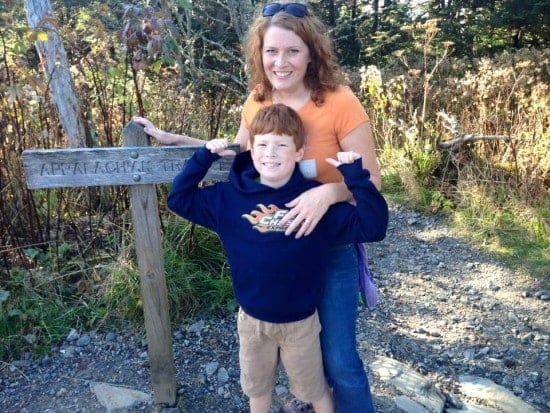When I was a kid, I loved to read! You’d often find me snuggled into a chair with Sweet Valley High, Goosebumps, or the Baby-sitters Club. I knew my kids would be the same!
Only, they weren’t.
My eldest, my 4th grade son, has severe dyslexia. After many years of reading therapy and interventions, he can read—but it’s slow and labored. It’s certainly not fun. It’s HARD. In fact, he’s been known to yell out in frustration, “I wish reading were never invented!”
Yet, he loves stories. When I read to him, his eyes light up and he absorbs every single word. When I get to the end of a chapter, he says “More, more, more!” and I read until my voice cracks. It’s heartbreaking to my momma heart because I know he has a desire to consume these beautiful and fascinating books independently!
Here’s the thing about dyslexia—it’s an UNEXPECTED struggle with reading. Kids who have dyslexia have average to even superior IQ levels. They can fully comprehend text at grade level or above when they hear it. Every sign points to the fact that they should be able to read easily, but it doesn’t happen that way.
We discovered our ramp to reading—audiobooks.
Watching my son struggle was heartbreaking, but my perspective completely changed after reading The Dyslexia Empowerment Plan, by Ben Foss. Ben is also severely dyslexic, like my son. In his book, Ben says, “The key to my happiness occurred when I stopped trying to change my brain and started changing the context around me. Focusing on eye-reading overlooks the real goals of education, which are learning, independent thinking, and mastering the ability to make new connections in the world of ideas.”
Ben is a big believer in assistive technology, specifically what he has coined as “ear-reading” otherwise known as audiobooks. Since that day, I’ve come to fully embrace assistive technology, and how it does help to level the playing field for my son! He does stay up all night reading now—ear-reading the fabulous books brought to him by the volunteer readers of Learning Ally, a national non-profit that serves people with print disabilities.
Don’t get me wrong, we haven’t “given up” on eye-reading. He still gets his tutoring and still practices, but we have found this fabulous ramp into the world of literature! We’ve embraced his dyslexia, and we are forever thankful. He gets so excited knowing he can easily read what his friends read now, and he stays up late reading books—just like I did as a child!
Audiobooks aren’t only good for self-confidence. Here are three additional ways I’ve discovered that audiobooks help children who struggle to read:
1) Access to Vocabulary
A 1998 study found that children’s books contain 50 percent more rare words than conversations between college-educated adults! Children who don’t read as often are missing out on all of that wonderful vocabulary. That will show up as a deficit once they reach high school and beyond, whether on SAT tests or in college application essays.
2) Boosting Comprehension Skills
It’s often said that those who read live 1,000 different lives, and it’s true! Books take you into a whole other world, where you can learn about different cultures, times and backgrounds. All of this helps children boost their comprehension.
3) Demonstrating Proper Fluency
Whether children are reading along in a paperback book or use the VOICEtext feature (where text is highlighted in sync with the audio), proper fluency and intonation is demonstrated by human-narrated audiobooks. That repeated exposure greatly helps in the long run.
Keep in mind, many kids who struggle to read may have a notion that they “hate reading,” so some may resist any form of reading (even audiobooks) at first. However, many kids get hooked after trying several different audiobooks of different genres. They have to find what they like. Play around with the audio reading speed and onscreen text options. With technology today, the options are endless!
